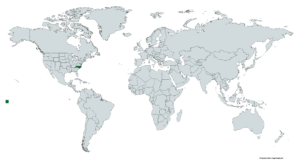The Implementation Science Fellowship Program

North Carolina Central University’s Julius L. Chambers Biomedical Biotechnology Research Institute (BBRI) conducts multidisciplinary and inter-institutional research focused on health issues that disproportionately affect under-resourced populations. With a focus on students, the institute provides research experiences that enhance their access to careers in the biomedical sciences.
The Julius L. Chambers Biomedical/Biotechnology Research Institute will, through the support of our Foundation and other funders, launch a one-year pilot program to examine how research-based health findings can be used more effectively to address health disparities and improve patient care.
Addressing Health Disparities through Implementation Science
According to the National Institutes of Health U.S. Library of Medicine, it takes 17 years on average for new evidence-based information to make its way into the routine practices of most clinicians. A lot of information coming out of labs and other research initiatives is evidence based, but it takes so much time to get this new information implemented in the community,” said Dr. Deepak Kumar, Director of the Chambers Research Institute. “By the time that it reaches them it may be too late, and it may not reach some communities at all.”
The program is in the field of implementation science, which studies the transformation of evidence-based findings into real-world applications. The NCCU team will be focused on ways that community-based interventions and health care innovations discovered through research can be applied in under-resourced communities to address health disparities.
“We are looking forward to supporting Dr. Kumar and his team to understand what Elsevier expertise, content, data and analytics can add to this valuable partnership, transforming research into solid, community-based interventions to tackle health disparities,” said Vice President for Education Content Kevonne Holloway, an alumna of NCCU.
Overview Goals Overview
Budget: $100,000
Location: North Carolina, US
- Establishing community advisory boards and focus groups to establish relationships and begin engaging communities in underserved counties of North Carolina.
- Organizing workshops for members of the core group on the process of efficient deployment of evidence-based findings in clinical settings, as well as faculty workshops in nursing, social work, psychology and public health to embed IS best practice and examples;
- Hosting a multi university Implementation Science seminar series, in partnership with researchers from t Duke University, or the University of North Carolina-Chapel Hill and RTI International, to support additional mentoring and networking efforts.
- Organizing outreach and networking activities within the NCCU community.




















